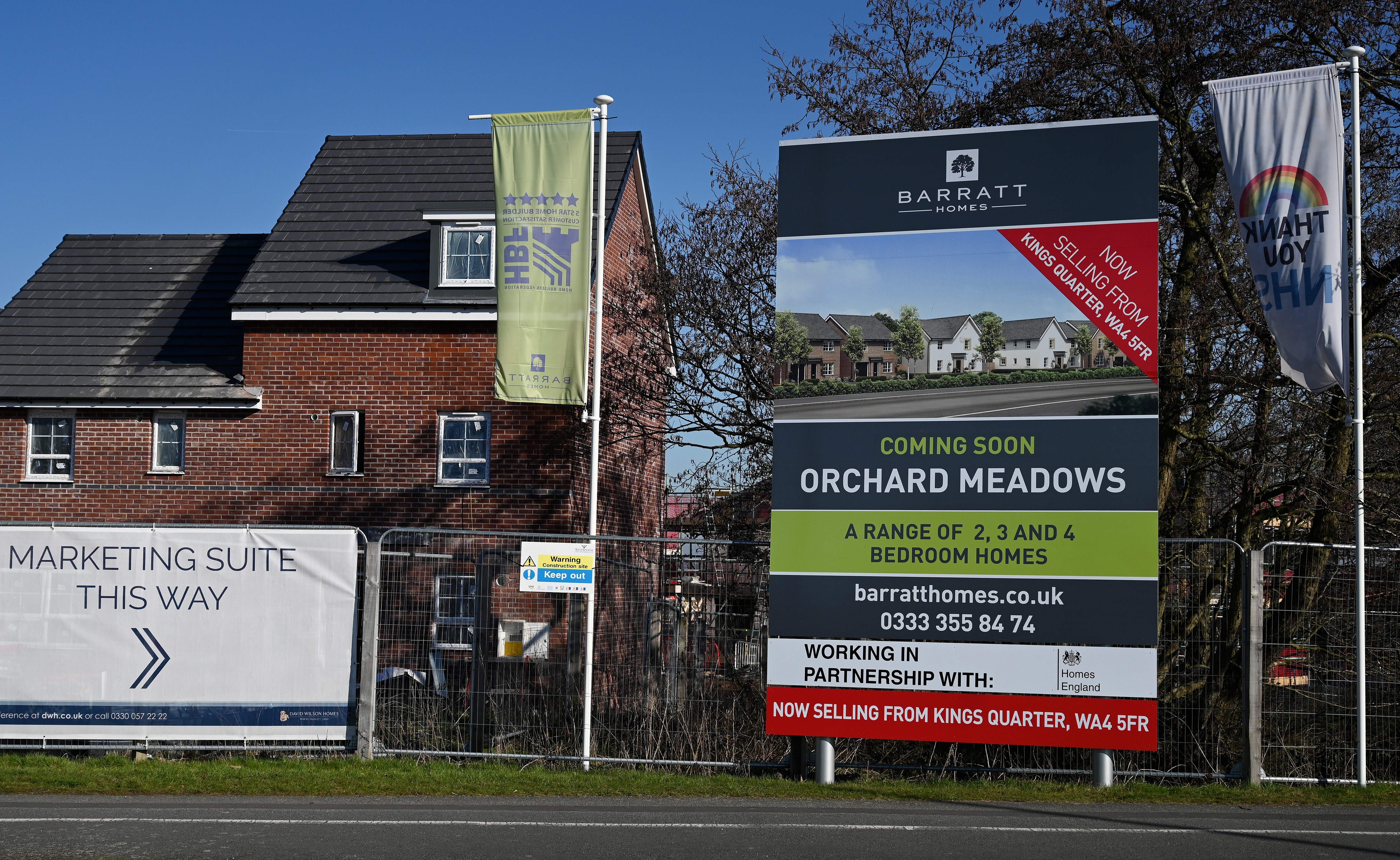UK house prices jump £24,000 in a year, despite economic turmoil
Average sale price rose 10.2% in the year to March, official figures show

Your support helps us to tell the story
From reproductive rights to climate change to Big Tech, The Independent is on the ground when the story is developing. Whether it's investigating the financials of Elon Musk's pro-Trump PAC or producing our latest documentary, 'The A Word', which shines a light on the American women fighting for reproductive rights, we know how important it is to parse out the facts from the messaging.
At such a critical moment in US history, we need reporters on the ground. Your donation allows us to keep sending journalists to speak to both sides of the story.
The Independent is trusted by Americans across the entire political spectrum. And unlike many other quality news outlets, we choose not to lock Americans out of our reporting and analysis with paywalls. We believe quality journalism should be available to everyone, paid for by those who can afford it.
Your support makes all the difference.The average UK house price has jumped by £24,000 in a year, despite the economy going through its deepest downturn in three centuries.
Official figures show that prices rose 10.2 per cent to £256,000 in the year to March 2021, far outpacing wage growth.
The annual increase was the fastest since August 2007, the Office for National Statistics said.
Sale prices of detached homes rose 11.7 per cent while flats and maisonettes increased by 5 per cent, supporting anecdotal reports and surveys which indicate the pandemic has prompted people to look for larger properties with outdoor space.
London again saw the lowest annual price growth with a 3.7 per cent increase. Yorkshire and the Humber registered the biggest gains at 14 per cent.
Average house prices rose 10.2 per cent in England, 11 per cent in Wales, 10.6 per cent in Scotland and 6 per cent in Northern Ireland.
Double-digit price rises across much of the UK will add to concerns that the UK property market is going through a bubble that has been inflated partly by government policy as well as savings that people have built up during lockdowns.
A stamp duty holiday, which had been due to end in March, was recently extended in England and Northern Ireland. In Wales, a holiday on the equivalent tax has also been extended until the end of June 2021. A similar property transaction tax break in Scotland ended on 31 March 2021.
The ONS report said: “Changes in the tax paid on housing transactions may have allowed sellers to request higher prices as the buyers’ overall costs are reduced.”
Sarah Coles, personal finance analyst at Hargreaves Lansdown, said: “We’re back to the kind of double-figure house price rises we saw in the heady days before the financial crisis.
“And while lenders are far more cautious than they were back in 2007, in this kind of market, there’s still the risk buyers will lose their heads, and make a property mistake that could haunt them for years.”
She added: “In this kind of market, properties often go for well over the asking price – sometimes after a bidding war. It’s far too easy to be sucked into paying thousands of pounds more than you initially planned.
“It’s also easy to start panicking that if you don’t buy now, you never will, because house prices will rise another few thousand pounds next month. This kind of stressed decision-making can lead to horrible mistakes.”
Samuel Tombs, chief UK economist at Pantheon Macroeconomics, said the return of the stamp duty threshold to normal levels later this year “likely will mark a prolonged malaise in the market”.
He continued: “Mortgage rates are higher now than they were pre-Covid, whereas households’ incomes are not. The amount of money left over for housing also likely will decline as households return to pre-Covid expenditure patterns.
“Finally, the surge in house prices is stimulating strong growth in new housing supply, which will bear down on price growth soon. Accordingly, we think that house prices will be marginally below March’s level at the end of this year.”
Join our commenting forum
Join thought-provoking conversations, follow other Independent readers and see their replies
Comments